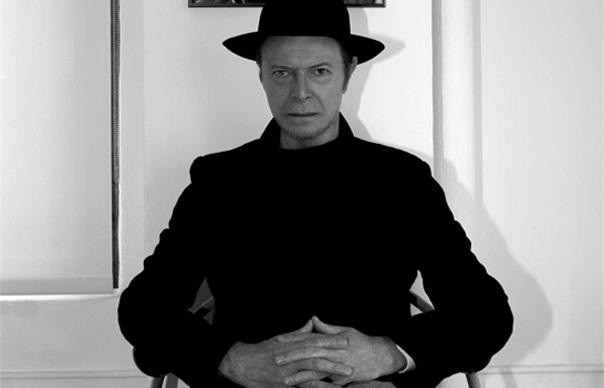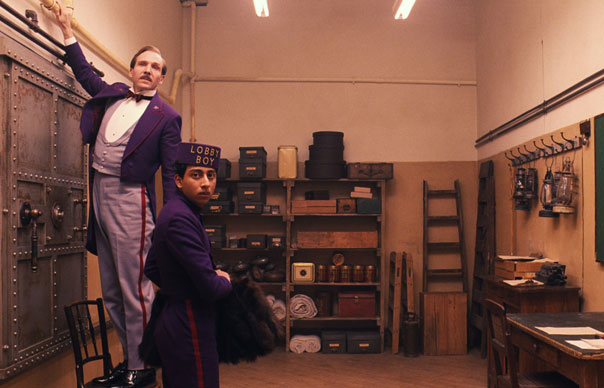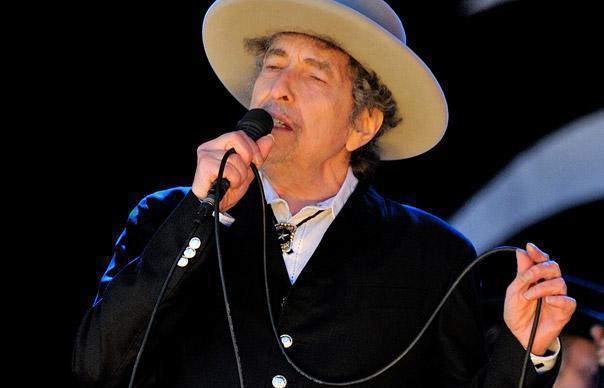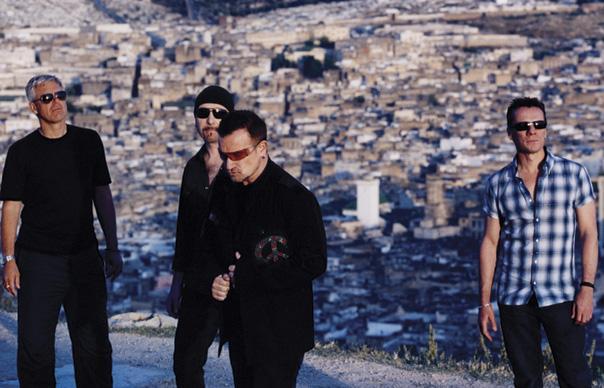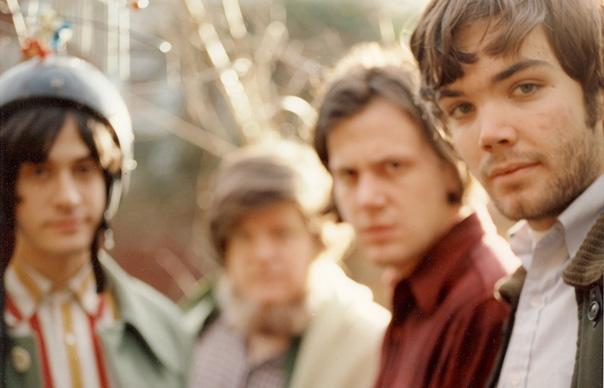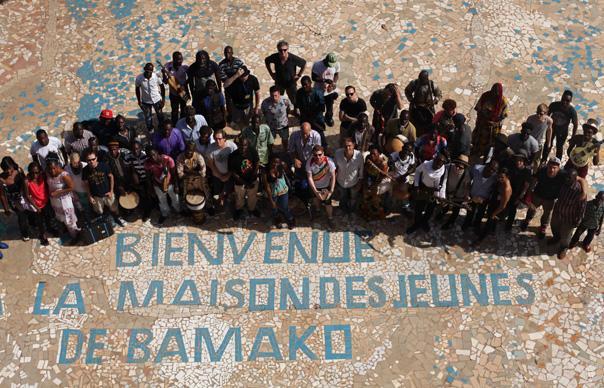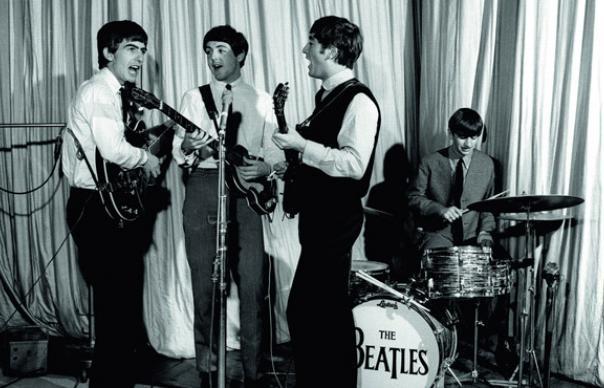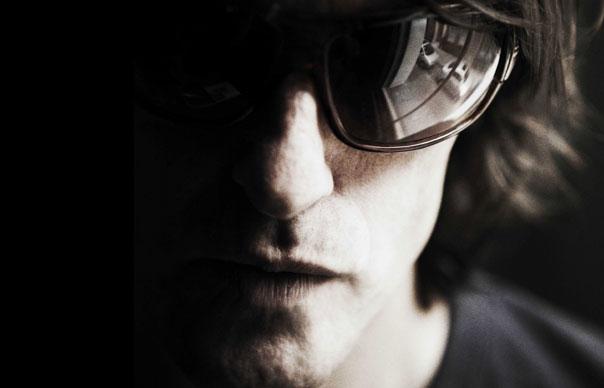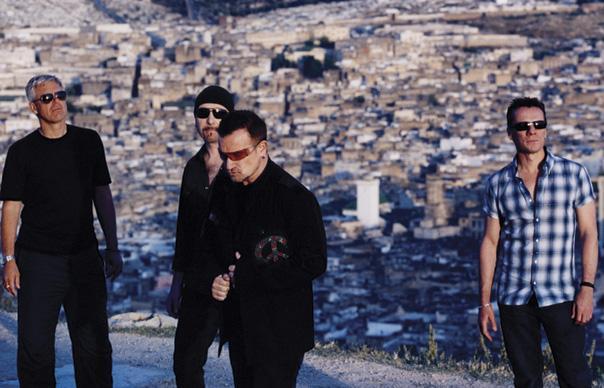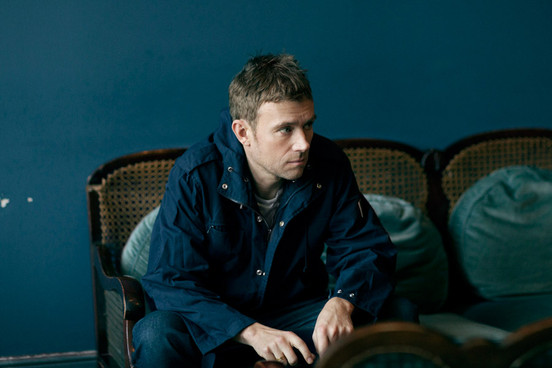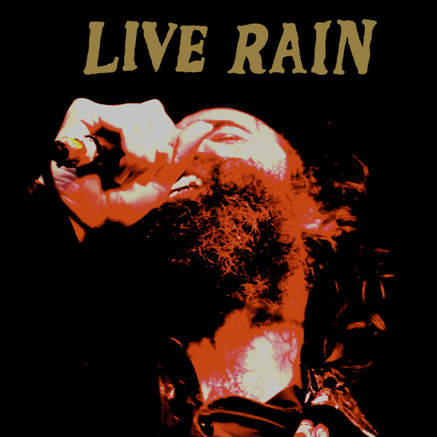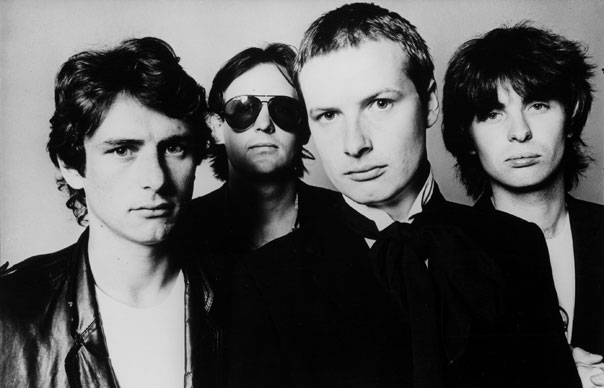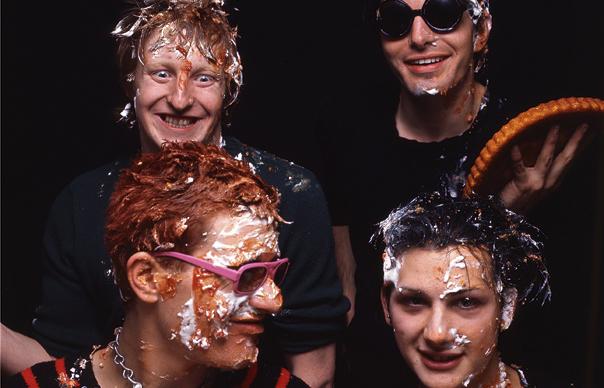There’s a very good feature in the current Uncut on the making of XTC’s “Making Plans For Nigel”, which reminded me of a time when I was often in their company, usually in far flung corners of the world, far from their Swindon homes, including the following adventure.
Miami, May, 1981. America comes here to die. Me? I’ve here to link up with XTC, who’ve just finished a North American tour. This afternoon, we’re flying to South America. To Venezuela, in fact, where Swindon’s collective answer to Vasco da Gama will play two shows in Caracas with Jools Holland & His Millionaires.
Last night, you would have found XTC drummer Terry Chambers in the bar of the Riviera Motel in Fort Lauderdale, firing back volleys of Budweiser and contemplating the prospect of this particular jaunt with typical circumspection.
“Venezuela!” Chambers had roared, eyeballs rolling. “I don’t even know where the bastard is. I’m just a drummer. I didn’t think I’d need a degree in fucking geography to find out where we were playing. I used to get lost coming up to London to play the Nashville. Now they’re sending me up the bastard Amazon. Where,” he wanted to know, this quizzical Wiltshireman, “is it all going to end?”
Terry had a point. The first time I met XTC was in a departure lounge at Heathrow. We had to wait five hours for an Air India flight to New York, where they were due to support Talking Heads at a special New Year’s Eve show at the Beacon Theatre. Next, we were off to Australia, XTC the first of Virgin’s so-called new wave bands to play the Antipodes. Further trips – including one epic four-day drive across America, from Texas to California – followed, XTC convinced they were being used as reluctant pioneers by Virgin, sent out to test the local waters for the rest of the label’s roster.
On the flight now from Miami to Caracas, Chambers is still in furrowed-brow mode on the subject of Venezuela.
“I mean – what’s it going to be like?” he wants to know. I don’t have a clue, frankly.
“Is it going to be full of fucking Aztecs, or what?” he asks. “I fancy it’s going to be like something out of When Dinosaurs Ruled The Earth or The Land That Time Forgot,” he finally decides, snapping on his safety belt, getting ready for landing. We emerge blinking into Venezuelan sunlight, groggy with beer. We are amused to learn that our own arrival at Simon Bolivar airport has recently been preceded by that of Prince Charles. His RAF jet is still cooling off on the runway.
“What’s that bastard doing ‘ere?” Chambers, typically, wants to know.
Colin Moulding suggests HRH may have jetted in to catch their show.
Andy Partridge thinks this is unlikely: “I reckon Charlie’s more of a Black Sabbath man. I can’t see him freaking out to ‘Travels In Nihlon.’”
Moulding agrees: “You’re right. Charlie’s definitely a ‘War Pigs’ man.”
Chambers, however, is struck by the idea of Prince Charles attending one of XTC’s shows. It’s explained to him that HRH is here on an official visit.
“He should still come to fucking see us,” Chambers insists. “We pay his fucking wages.”
“He’s not one of our roadies, Terry” Colin says, shaking his head as we struggle through customs.
Here to meet us is legendary Virgin PR, Al Clarke, who for many years heads up the Virgin press office before he goes off to Australia to make films, notably producing Priscilla, Queen Of The Desert. With Al this evening is Ian Reid, XTC’s manager, a cross between Terry-Thomas and Spinal Tap’s blustering Ian Faith. With Al leading the way, we are now somewhat whisked across Caracas at high speed to Radio Capitale, where local promoter Tony DeLuca has arranged an interview with top Caracas DJ Ramon Mata. Jools Holland & His Millionaires are already there, Jools teasing Ramon quite mercilessly.
Ramon is a trouper, however, naturally ebullient. With Al Clark acting as interpreter he attempts to interview the assembled throng. “Ramon wants to know what each of you consider to be your principal characteristics as a group?” Al says.
“Big willies,” says Jools, putting an end to that line of questioning.
Al translates another question: are XTC and The Millionaires both promoting new albums.
“Tell him in our case we’re flogging a dead horse,” suggests Andy partridge. Al passes this on to Ramon, who passes it on to his audience. Al then attempts to stifle an outburst of uncontrollable laughter.
“’Flogging a dead horse,’” he explains, “has just been trtanslated as ‘selling a mule that has no life.’”
The next day, we’re at the venue for XTC’s Caracas shows. The Poliedero is a concrete monstrosity in the mountains overlooking Caracas that’s as big as the Houston Astrodome. Ian Reid fears a low turn-out for the show.
“I think Tony’s going to lose his shirt on this one,” he says.
“The way this place is filling up, he’s going to lose his bastard trousers as well,” Chambers says, the vast interior of the Poliedero staring back at him, ominously vacant.
Backstage, a rather busty television reporter is attempting to interview Jools Holland, the eternally suave Al Clark, obviously smitten by the reporter’s charms, again acting as interpreter.
“She wants to know how long you’ve been Jools Holland & His Millionaires,” Al beams, batting an eyelid at the camera, now rolling.
“I’ve always been Jools Holland,” says Jools Holland. “But these boys have only been Millionaires for a few months.”
Chambers and I are wandering once more through the Poliedero when two military trucks roar into the stadium, lights flashing, dozens of riot police, formidably uniformed storm-troopers with machine guns and machetes, disembarking and forming rank.
“Fuck me,” says Chambers. “What are these fucking swords all about? It’s like something you’d see at an Adam-and-the-bastard-Ants gig.”
Later, Jools Holland & his Millionaires are finishing their set.
“I’d just like to say we have had a wonderful time here in Caracas,” Jools tells the crowd. “We’ve stayed at your Hilton, we’ve drunk your wine, we’ve knobbed your tarts. Now we must say goodbye!”
The audience looks on, puzzled.
XTC, following, have a hard time with the crowd, don’t play well and seem relieved when the riot police, who have been a menacing presence throughout, start moving into the crowd, smacking people with the flats of their machetes, dispersing the crowd, finally bringing the show to a premature end when they turn on the house lights with a sudden blazing flash, the audience heading for the exits then in a rush.
Backstage, Colin Moulding is dejected.
“We couldn’t get through to them,” he says. “It was like trying to get your mum to listen to Captain Beefheart.”
“That’s exactly what it was like,” Andy agrees. “Like trying to get your old dear to listen to ‘Dachau Blues’ when she’s doing the dusting.”
“I just hope prince Charles wasn’t out there,” muses a worried Chambers.
The next night, as these things usually go, XTC play an absolute blinder. The crowd are up for it, too – taunting the riot police into machete charges, lighting bonfires from which frenzied locals emerge with shirts and trousers blazing.
The band finish on the stroke of midnight with the anthemic “Statue Of Liberty” and the houselights go up again, the smoke from the bonfires curling casually to the cavernous curve of the Poliedero’s huge and distant dome.
Cue euphoric scenes backstage. Tony DeLuca is embracing everyone. He may indeed have lost his shirt, but at least he’s still wearing his trousers.
Felipe Rodruigez, a Miami-based Cuban entrepreneur who’d helped coordinate these shows and who may have been a model for Pacino’s Tony Montana, is already planning his next stunt: The Clash in Nicaragua, playing for the Sandanistas.
“Goddamfuck, man,” he says. “The kids, they would love it!”
Even Chambers, earlier morose and homesick, is chipper.
“A good gig and a beer in my hand – I’m a happy man,” he grins.
He sinks his beer, looks around quizzically.
“’Ere,” he says. “Did anyone see Prince Charles out there tonight?”
No one had.
“That’s all right,” Chambers says then, somewhat relieved. “Because I forgot to put the bastard’s name on the guest list.”


